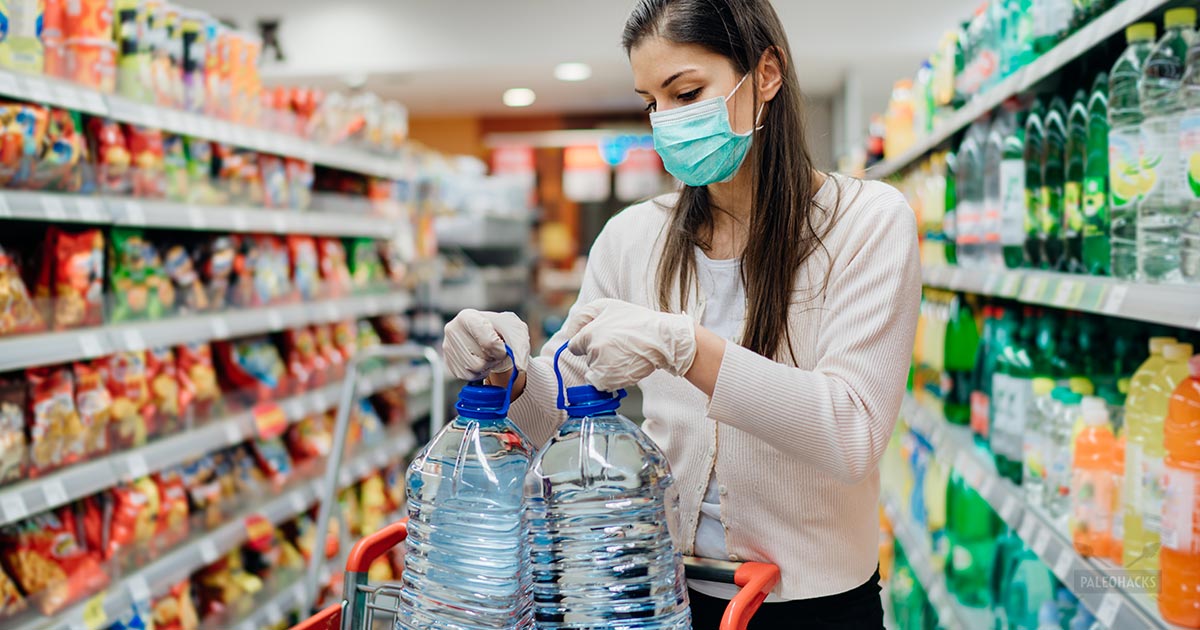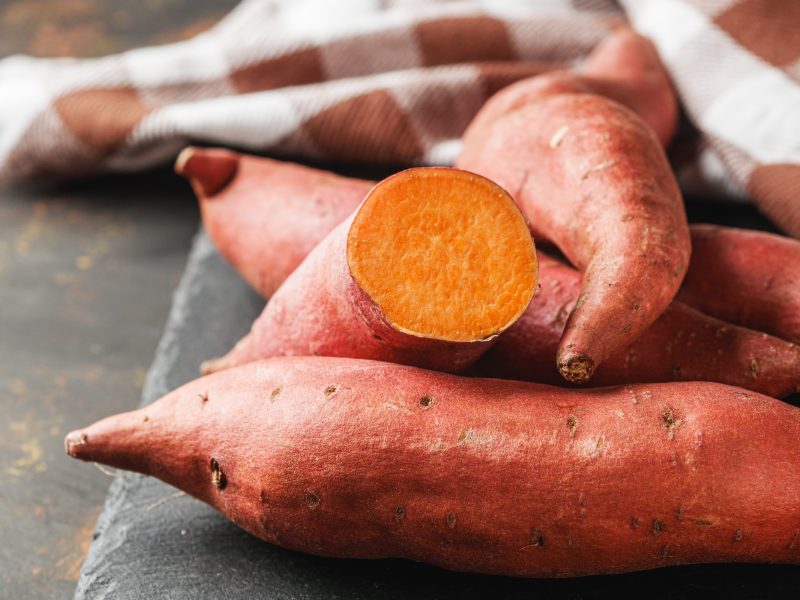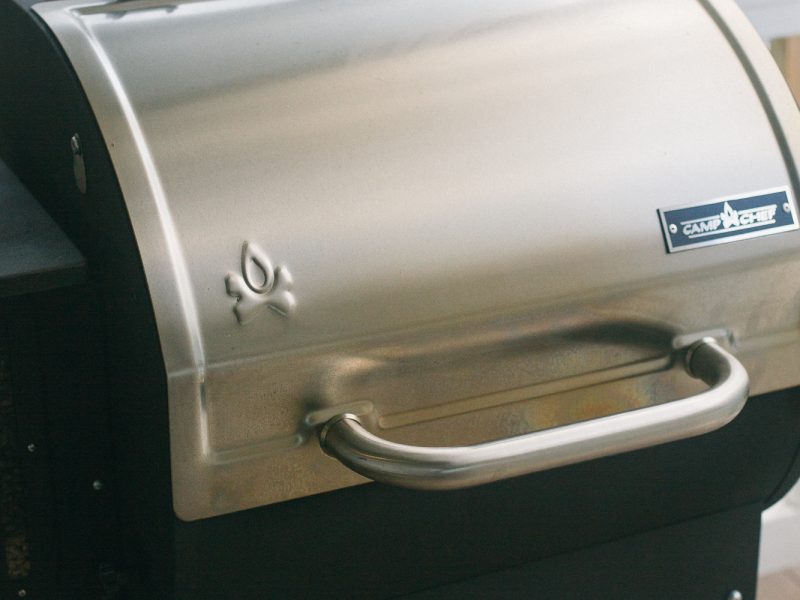A pandemic is scary and we’re here for you. We’re giving you the who, what, when, where, and how on preparing and surviving a pandemic.
We want you to stay healthy and safe, so we wrote an extensive and expert list of the things you need to know. Start now, check the list, and take action.
We break down pandemic prevention, how to stock your pantry, freezer, medicine cabinet, and more. With the kids out of school, let’s not forget that we need to keep those little hands and brains busy and out of our hair. We also share our must-do-now mental health tips to keep your sanity while being at home and practicing social distancing. Let’s say no more and jump right in.
Want to train your brain to be happier and healthier?
Click here to receive our FREE 7-Day Meditation Challenge!
Preventative Measures
1. Act as though you have the virus and want to avoid passing it on to others.
2. When you sneeze or cough, use a tissue to cover your nose and mouth. Be sure to dispose of the tissue in a hygienic way. If you don’t have a tissue, cough into your elbow.
3. We’ve all seen images of people wearing face masks. Although this is another layer of prevention, how effective it is, depends on the type of mask. It might not be as effective at protecting others and yourself as you think.
4. Wash your hands frequently with soap and water, making sure to scrub for at least 20 seconds. We recommend trying My Green Fills soap. Our friends at Truly Free have developed a non-toxic hand soap with aloe vera that will keep you and your family safe & healthy. Protect your family and stock up for every sink in your home and office.
5. Use an alcohol-based hand sanitizer whenever you can’t wash your hands.
6. Avoid contact with people that aren’t at home with you. Don’t shake hands or hug them.
7. Stay at least 6 feet away from people who display symptoms such as a dry cough or sneezing.
8. Avoid traveling overseas and any local traveling that’s not absolutely necessary.
9. Avoid crowds and public places such as malls, supermarkets, and big office buildings.
10. If possible, order food and supplies online. Try to order food that is pre-packaged and not standing open on the shelves so that it needs to be selected.
11. If you are receiving a delivery and need to sign on a device, be sure to wash your hands right afterward using My Green Fills soap and use an alcohol-based cleaner to sterilize the box and packaging.
12. If you do become ill, practice self-isolation as much as possible. Do all that you can to keep work colleagues, loved ones, and others safe. This includes putting measures in place to protect your loved ones who are at home with you. For example, make sure that your kitchen items are clearly labeled, avoid close contact, and wipe down and disinfect surfaces and items as much as you can.
13. Have copies of your medical records handy.
14. Make a plan of what you’ll do if you or someone in your family falls sick. Will you keep kids at home with you? Who will look after you? Your pets?
15. If a suitable vaccine is publicly available and recommended by local health authorities, get jabbed.
Pantry and Freezer
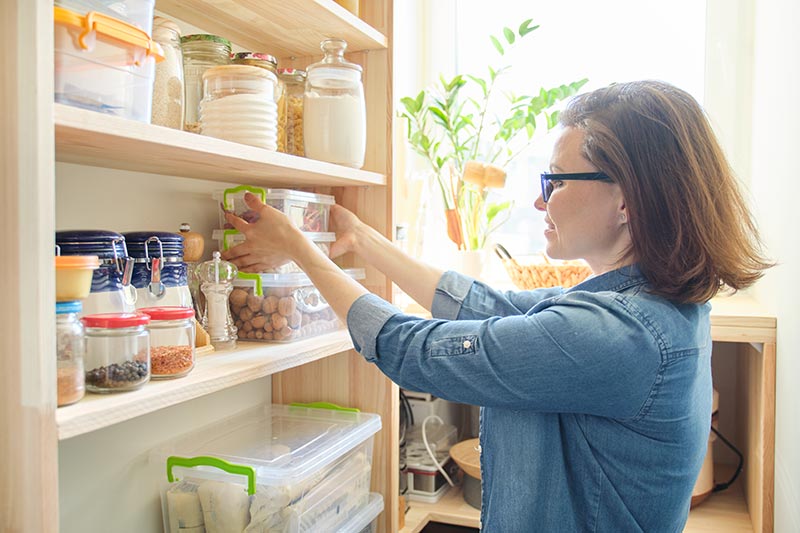
16. Stock up on 2 weeks of drinking water.
17. Stock up on 2 weeks of shelf-stable food such as canned tuna, jerky, sardines, olives, raw unsalted nuts, nut butters, delicious and immune-boosting bone broth, tinned tomatoes, and pesto.
18. Stock up on 2 weeks of eggs. (They can last 3 to 5 weeks in the fridge.)
19. Stock the freezer with flatter items that can stack easily such as bacon, chicken breasts, frozen vegetables, fish, ground meat, and sausages.
20. Stock up on vegetables that can last a long time such as butternut squash, gem squash, onions, carrots, sweet potatoes.
21. Stock up on fruit that lasts well like lemons, oranges, apples, pears, etc.
22. Stock items like olive oil, spices, and herbs.
23. Stock up on a few treat items or ingredients to bake treat items.
24. Don’t stress if you can’t stick to a 100% Paleo or Keto diet during this time. Keep going as much as possible and resolve to jump back onto the Paleo or Keto wagon as soon as you can. Need some recipe inspiration? Grab a free copy of the Keto Slow cooker cookbook here if you don’t already have it.
Cleaning Supplies
25. Stock up on cleaning supplies such as washing powder, hand washing soap, dishwashing liquid, and cubes, general cleaning liquids, etc.
26. Purchase paper towels and disinfectant spray to wipe down packages from deliveries or shopping.
27. Stock up on hand sanitizers and tissues.
Personal Care Items
28. Stock up on dental care items like toothpaste and dental floss.
29. Don’t forget to stock up on ladies’ products for that time of the month.
30. Stock up shampoo, conditioner, soap, and any other personal care items.
31. Don’t forget the toilet paper.
Medicine Cabinet
32. Ensure essential prescription drugs are topped up.
33. Make sure you have enough over-the-counter medication like allergy meds, cough mixture, anti-diarrheal meds, basic painkillers like paracetamol, etc.
34. Invest in a first aid kit and extra bandages, antiseptic ointment, etc.
Pets
35. Stock up on pet food for 2 weeks.
36. Stock up on essentials that your pet might need like kitty litter or medication.
37. Don’t forget to buy poop bags.
38. Take your dog for a walk during the day if you are working from home. You’ll get some exercise and so will your dog.
Kids
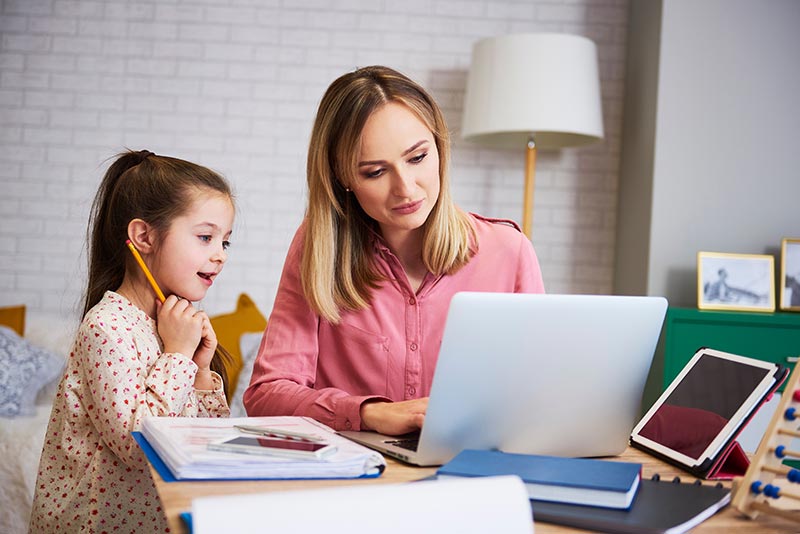
39. Stock up on items you would need for kids such as diapers, wipes, formula, medication, etc.
40. Make children aware of the virus and what they can do to prevent it.
41. Teach them the preventative measures and encourage them to sing the “Happy Birthday song” while they wash their hands.
42. If you are now schooling your kids, and don’t have too much direction from the school, keep this in mind: don’t try to imitate school at home. It’s not going to work and will probably end up with you being in tears. Be creative. Do “school” outside under a tree or on the lounge floor or on the couch.
43. Use online resources to make learning interesting. Many platforms provide supportive lessons for parents and kids. Check out: https://ed.ted.com/ for daily lessons for elementary school to university level.
44. Don’t be restricted by “school hours” if you don’t need to be. If you do lessons in the afternoons that’s fine. Let your kids sleep a bit later, it will be good for their immune systems and give you time to get some work done.
45. Practice the art of negotiation and possibly a bit of bribery. “Once you’ve completed 10 sums, we’ll have ice cream…”
46. If your child has a long list of spelling words or a long lesson, break it up into chunks of 5 and spread the chunks out through the day instead of trying to get through all 20 words at once.
47. Use online resources to help you understand the lessons that you might need to teach. A good place to start is Kahn Academy. They have great online lessons for parents and kids.
48. Most importantly, know when to call “time out”. If a lesson is too much and everyone is stressed out, step away for a bit and tackle it the next day.
49. Install safety measures on devices such as “safe search” and parental controls.
50. Play an online game or console game with your kids – it’s way harder than you may realize and it’s actually very good for your brain.
51. Get outside with the kids, take the dog for a walk, ride bikes, etc.
52. Use this opportunity to get to know your children and spend time with them.
53. Keep things in perspective, it’s just as big a change for your children as it is for you, and change takes time. Is it really worth shouting at them over maths or handwriting?
54. Remember, you’re not a bad parent if you don’t know how to teach your children. Do what you can and encourage them and yourself during this time.
Work
55. Work from home if your employer allows it.
56. You’re not too old to learn new tech. If you don’t know how to use an online team tool, Google is your friend and remember that there are many people in the same boat trying to figure out working from home.
57. If you have to go into work, make sure you take a hand sanitizer with you and a disinfectant spray.
58. Avoid crowded areas like the canteen, elevators, etc.
59. Avoid shaking hands and close contact with colleagues and clients.
60. Take your own mug and eating utensils. Wash them and keep them with you once you’ve finished eating.
61. Take a packed lunch with you (try a tasty slow cooker meal from our Keto Slowcooker cookbook to save you time in the kitchen) and eat at your desk or outside if possible.
Motor Vehicle
62. Don’t forget to drive your car every now and then to prevent the battery from going flat and wear surgical gloves when filling up the car.
Healthy Habits
63. As much as possible, try to maintain a healthy diet and take your multivitamin every day. Don’t have a vitamin regime? For starters, a high dose vitamin C is worth taking right now… Many are discovering this powerful Essential Vitamin C from our partners at Paleovalley, with indicated higher absorption rates than most vitamin C. Also, we also recommend trying Organifi Greens Laboratory science shows time and again, chlorella (a superfood algae) boosts IgA secretion. IgA is an antibody that plays a crucial role in the immune function of mucous membranes. IgA is CRUCIAL to build our cells ability to fight off pathogens. If you want an immune booster that’s formulated by people who know the exact combinations of superfoods will ACTUALLY fortify your immune system… then I highly recommend you grab some Organifi Green Juice.
64. Sit in the sun every day. Read Why Avoiding The Sun Is As Dangerous As Smoking.
65. Make exercise a part of daily life. Even if it’s just a HIIT workout or a long walk around the block. Remember, working from home often means less daily movement because you’re not running off to meetings or going to the canteen.
66. Avoid the gym and workout at home. Movement 101 is a comprehensive resource with workouts for every level and preference.
67. Get enough sleep to keep your immune system strong. Read 8 Tips for Better, More Effective Sleep.
68. Drink lots of water. If you struggle to drink water try one of these 21 Infused Water Recipes to Help You Hydrate.
Mental Health
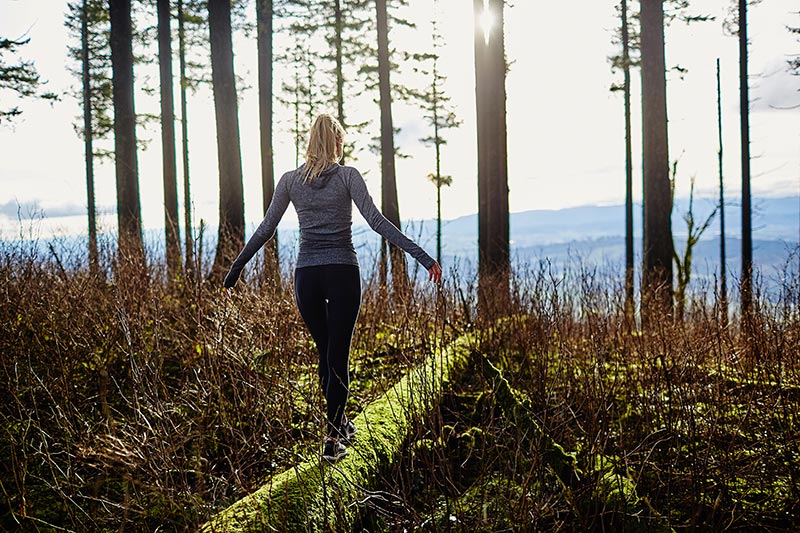
69. Don’t spend all your time reading up on the coronavirus. Check-in on trustworthy news sites every now and then. Too much news can be overwhelming.
70. Don’t believe everything you read on social media or receive via group chats. There is a lot of fake news out there so only use trusted sources.
71. Stay in touch via telephone, online messaging apps, etc. Call that old friend from school that you’ve been meaning to call.
72. Take time to sit in the sun and breathe deeply. Practice stress management techniques, go for a walk, and exercise. Try The 5 Best Yoga Poses to De-Stress.
73. Spring clean and sort that cupboard that’s been bothering you for a while. There’s something therapeutic about bringing order into areas of chaos in your home. This can give us a sense of control when circumstances around us may feel out of control.
74. Speak about your fears and, if needed, speak to your therapist via the telephone or online.
75. Take up that hobby you’ve been meaning to do (as long as it keeps you safe though).
76. Get into the garden, grow some plants, clean up the yard. Use this time to catch up on tasks around the home that you’ve been meaning to do for a long time.
77. As the saying goes, laughter is the best medicine. Watch a comedy, speak to that friend who always makes you laugh or read something funny.
Bottom Line
People around the world, in every country and culture, are going through a similar experience. In a way, we are more connected than ever. Remember, you are not alone. Also, remember there are those who might be having a more challenging time. Particularly those who are at high-risk like the elderly and immune-compromised. Maybe you have an elderly neighbor who needs help with their yard or needs some supplies that they can’t risk getting from the shop. Give them a call, drop off supplies at their gate, or help out in the yard. Just remember to do so safely and within the health and local community guidelines.
Read This Next: Coronavirus: 5 Ways to Protect You and Your Family From This Deadly Virus
